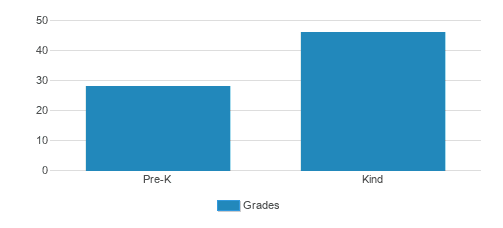First Colony Montessori is closely to the Montessori Method. This method was developed by Italian educator, Dr.
Maria Montessori, in the early twentieth century. The Method is built upon the idea that children develop and think differently than adults, and that they are competent beings, capable of self-directed learning.
To encourage this capability, Dr. Montessori developed and refined numerous objects and tools that facilitate every phase of development, from motor skills to concrete knowledge to abstraction.
Language, mathematics, spatial learning, self-discovery, music and art - they're all incorporated into the Montessori approach.
We encourage children to work at their own pace in a non-competitive atmosphere, to gain an understanding of themselves and develop a sensitivity to others.
Children may work alone or in groups, all in an atmosphere of courtesy and respect.
School Overview
School Type
Religious Affiliation
Grades Offered
Grades Nursery/Preschool-Prekindergarten
Student Body
Total Students
74 students
Student Body Type
Co-ed
% Students of Color
78%
State avg.: 41%
Students by Grade

Academics and Faculty
Total Classroom Teachers
6 teachers
Student-Teacher Ratio
12:1
National avg.: 13:1
Tuition and Acceptance Rate
Admission Deadline
None / Rolling
Source: National Center for Education Statistics (NCES)
Frequently Asked Questions
When is the application deadline for First Colony Montessori?
The application deadline for First Colony Montessori is rolling (applications are reviewed as they are received year-round).
Recent Articles

How Global Economic Trends Shape Private School Affordability
Explore how global economic trends influence private school affordability and enrollment in 2026, with insights for families and educators.

Parent Engagement in Private Schools in 2026
Explore how parent engagement in private schools builds strong communities, support networks, and student success in 2026.

So Many Choices: Navigating Private School Selection in 2026
A 2026 parent guide to choosing the right private school, with updated admissions timelines, tuition trends, affordability strategies, and expert insights.







